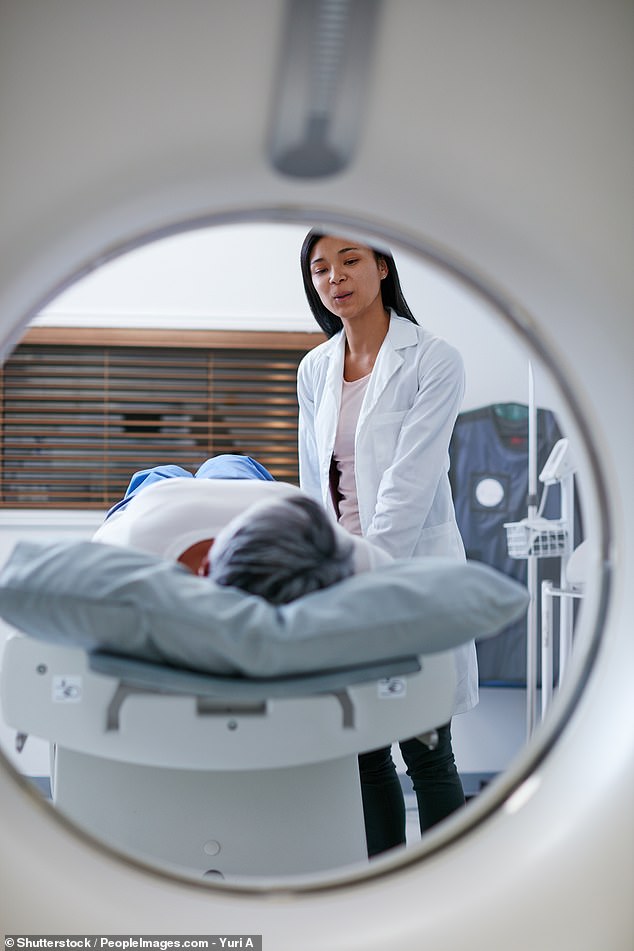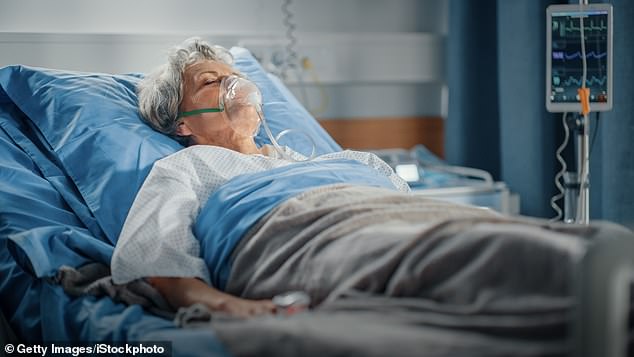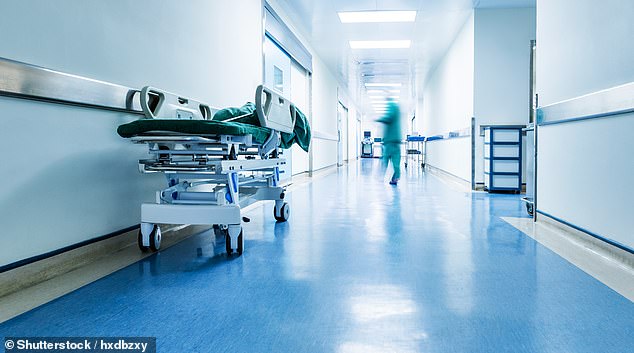Elderly patients nearing the end of their lives are being subjected to unnecessarily distressing and risky diagnostic tests, a study suggests.
Researchers say unnecessary checks also increase costs for the NHS, extend hospital stays and delay access to scans for people with many more years to live.
The findings reflect a growing national trend toward medicalization and under-recognition of death, experts added, with many doctors ordering scans out of fear of being sued rather than out of clinical necessity.
More than a quarter (28%) of hospital admissions in England between September 2021 and 2022 were patients aged 75 or over, and more than a third (35%) were in their final year of life.
Elderly patients nearing the end of their lives are being subjected to unnecessarily distressing tests and scans (file image)

There is little evidence to support the benefits of these investigations in this group of patients, according to study leader Dr. Joseph Hawkins (file image)
Total diagnostic imaging activity has increased in England since 2013, with 44 million radiological procedures performed in 2021/22, of which around one in five were in patients aged 75 years or older.
However, there is little evidence to support the benefits of such research in this group of patients, according to study leader Dr Joseph Hawkins, a consultant in palliative care at Ashford and St Peter’s Hospitals NHS Trust.
To strengthen the evidence base, his team reviewed the clinical notes of every fourth patient who died aged 80 or older between July and December 2021 after being admitted to a hospital in southern England.
Of the 96 patients admitted, the average age of death was 88 years.
During the last six months of life, this group underwent 389 X-rays, 92 ultrasounds, 192 CT scans and six MRIs.

Nearly one-third (30 percent) of people aged 90 years or older underwent between six and nine radiological procedures (file image)

There is the expense of an already overstretched health service, with estimated costs for the 96 patients amounting to around £102,000 (file image)
Nearly 28 percent had undergone six to nine procedures and 26 percent had 10 or more, according to the findings published in the journal BMJ Supportive & Palliative Care.
Nearly one-third (30 percent) of people aged 90 years or older underwent six to nine radiological procedures, and the highest number of ten or more was performed by 43 percent of people aged 80 to 85 years.
The researchers said: ‘These results raise questions about the real benefit of radiological investigations in this cohort of patients.
‘It has been estimated that between 20 and 50 percent of high-tech imaging scans failed to provide additional information to improve patient outcomes.
‘Furthermore, the motivation for requesting imaging is not always solely for diagnostic benefit, and it has been shown that scans may be requested out of fear of medico-legal ramifications or as a result of patient expectations.’
These procedures are not without risks, researchers warn.
This includes patient distress, the need for sedation, and longer hospital stays, which increase the chances of infection and falls.
There is also the expense of an already overstretched health service, with estimated costs for the 96 patients amounting to around £102,000, they add.
“We assume that the failure to adequately consider the importance of recognising death and managing subsequent conversations is at the heart of these clinical management errors that lead to an excessive research burden for both patients and the health service,” the researchers conclude.

